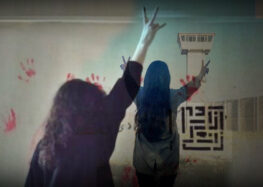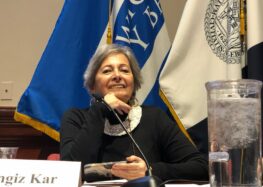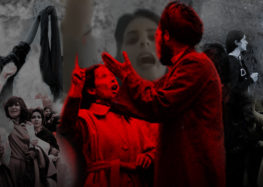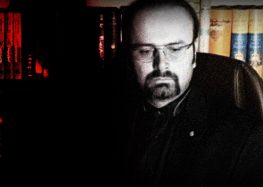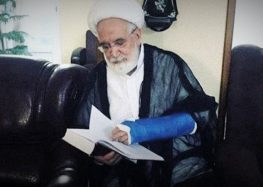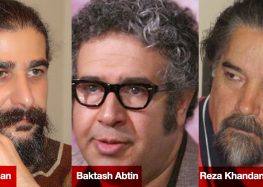Supreme Leader’s Comments on “Freedom” in Iran Ring Hollow For Victims of Rights Abuses
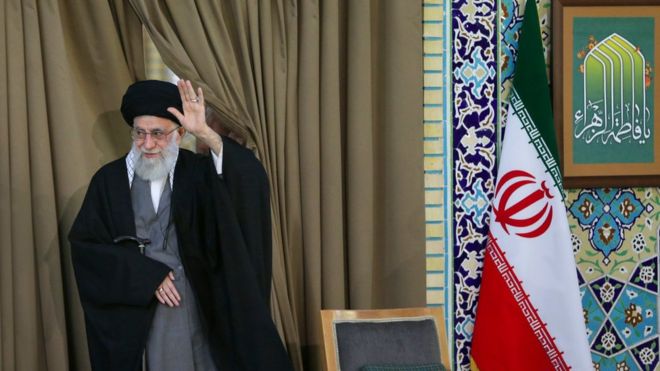
A former public defender that worked in Iran on cases involving human rights violations has spoken out against the Iranian supreme leader’s claim that citizens are free to criticize state policies.
“There is no freedom of expression or freedom after expression in Iran,” Mehrangiz Kar told the Center for Human Rights in Iran (CHRI) on March 26, 2018. “Mr. Khamenei is being deceptive and using the same tricks used by the judiciary to persecute people.”
“His target audience is the masses, not a great majority of people who are very much familiar with what goes on in the judicial system,” added the human rights defender.
Kar’s husband, writer and intellectual Siamak Pourzand, committed suicide in 2011 ten years after he was detained and tortured in Iran. Kar settled in the US in 2001.
“The truth is that when the judicial branch wants to make a case against someone who has said or written something against the country’s official policies or crossed some red line, it will charge him with acting against national security, propaganda against the state, insulting the sacred, spreading falsehoods, or disturbing public opinion.”
Citizens targeted by security forces in Iran are charged with national security crimes, which enable the judiciary to deprive the defendant of the due process rights afforded to Iranian citizens by the Constitution.
Activities that can result in national security charges in Iran include peacefully advocating for human rights, criticizing state policies and removing your headscarf in public if you are a woman.
Ignoring documented cases of Iranians being imprisoned simply for criticizing state policies, Supreme Leader Ayatollah Ali Khamenei recently claimed citizens are free to express their opinions without repercussions.
“Today, no one in the Islamic Republic is pursued or pressured for holding thoughts and views against the state…” said Khamenei on March 21 during a speech in the city of Mashhad. “But freedom in the Islamic Republic, as in other places in the world, has a framework.”
Khamenei’s declaration excluded the fact that peaceful Iranian opposition leaders Mehdi Karroubi, Mir-Hossein Mousavi and Zahra Rahnavard have been held under house arrest in total isolation for more than seven years, since February 2011, without trial.
At the beginning of 2018, thousands of citizens were also arrested in Iran for protesting against economic and political state policies.
Dozens of political and civil rights advocates are meanwhile serving long prison sentences for their peaceful activism.
And in 1988, 11 years after Iran’s revolution, thousands of people were executed in the matter of months without trial for allegedly holding anti-state views.
But according to the supreme leader, those who point out these facts are “unfair” and abusing freedom in Iran.
“Some unfair people abuse freedom and say there’s no freedom in the country and then foreigners disseminate their statements in their propaganda,” said Khamenei. “Yet there is freedom of thought, freedom of expression and freedom of choice in the country.”
During an earlier speech, Khamenei tried to pin the recent protests on President Hassan Rouhani, implying that the centrist cleric could do more to alleviate problems regarding economic and social justice problems in Iran.
“We are lagging behind in the area of justice, there’s no doubt about that,” said Khamenei on February 19. “We ourselves admit and accept this.”
He continued: “We must apologize to Almighty God and the dear people. We have problems in the area of justice and hopefully, with the efforts of our capable and faithful men and women, we will progress in this area as well.”
Khamenei’s analysis of Iran’s economic problems failed to include the fact that labor rights activism in the country is seen as a national security offense; independent labor unions are not allowed to function, strikers are often fired and risk arrest and labor leaders are consistently prosecuted under catchall national security charges and sentenced to long prison terms.

